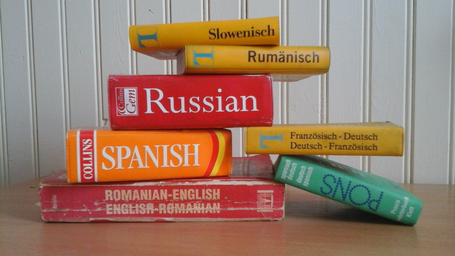If learning a new language was one of your lockdown pastimes, you may find that your language journey has significantly slowed down as restrictions are being lifted. As a beginner student of Korean, I can attest to that. I’m not a linguist by any means, but I have learned almost as much about language acquisition as actual language learning in the last few months and have several tips for anyone looking to start (or continue!) their own language journeys.
- Invest in structured lessons
-
Although you can teach yourself how to do anything via the internet these days, I highly recommend signing up for a formal course or hiring a tutor. A certified instructor – especially one who is a native speaker – can help you perfect your pronunciation as well as teach you about nuance, which textbooks tend to leave out. I found a wonderful tutor on iTalki, who gives me a structured lesson over Skype for an hour each week. Depending on your level of fluency, you can book a certified instructor like me, or simply a conversational partner to practice speaking with. Video-chatting with a complete stranger can be kind of awkward, but if there’s one thing that remote classes prepared us for, it’s this!
If you can’t afford lessons, there’s also an app called HelloTalk, where you can text and speak to people in your target language (TL). Although I have yet to try it myself (I’m still getting used to typing in Hangul, the Korean alphabet), I often see it recommended by other language learners on YouTube and Reddit. If you’re already comfortable reading and writing in your TL, it’s worth a shot!
- Review A little bit everyday
-
In other hobbies, you can easily pick up where you left off, but unfortunately, that’s not the case with language learning. It’s easy to forget languages when you’re not using it, so although I work two jobs and have a number of other obligations every week, I try to fit in at least half an hour of studying and reviewing per day. It’s much more beneficial to review a little bit everyday, than to “make up for it” by cramming tons of material on your day off.
During a good review, you’ll try to practice each aspect of language: speaking, writing, reading, and listening. I’m also a big believer of teaching as a learning method, so I’ll usually repeat what I just learned to my family and friends, whether they want to hear it or not :-)
- learn the concept, not the translation
-
If there’s one tip you ought to take away from this article, it’s this one. I grew up bilingual (English and Tagalog) so I know fully well that there are words or phrases in other languages that can’t always be translated into English. For example, “naman” is a word that has several meanings in Tagalog but no direct translation in English. Every Tagalog speaker understands it, but it’s difficult to explain it. From my own understanding, it can be put at the end of a sentence to make it more casual/friendly, but it can also be used to show contrast or emphasize something. Then, when you add “na” in front of it (“na naman”) it means “again”. If that weren’t complicated enough, you can also use it as an exclamation to convey exasperation: “Naman e!”
I understand “naman” because I understand the (many) concepts of it, not because I know what it means in my primary language, English. When learning a new word or phrase in a new language, try to understand the concept or meaning without translating it. Not only will this help the new vocabulary stick, but it will also teach you how to use it correctly in a sentence later on.
- Try to think in your target language
-
This sounds strange, but once you get the hang of it, it is a really useful trick! It doesn’t have to be anything long and poetic. It can be as simple as looking at a chair and thinking to yourself, “This is a chair.” (For me, “이것은 의자이에요”). Not only does it help you retain vocabulary, but it also forces you to form sentences with context.
Bonus tip: try to speak to yourself in your TL as well. With masks these days, you can easily whisper to yourself in public.
- Staying motivated is key
-
“If you talk to a man in a language he understands, that goes to his head. If you talk to him in his own language, that goes to his heart.”
Remind yourself why you want to learn a new language. Is it because you want to live in another country someday? Or increase your chances of finding a job? Or simply because you enjoy other cultures? Personally, I love learning new languages because I think that it opens up more doors socially. I’ve been to a few places where I don’t speak the language and as much as we are told that English is the universal language, there are, in fact, many people around the world who don’t speak it. Think of all the connections that could be made with others if we could properly communicate with them!
I don’t know about you, but I don’t have much discipline when it comes to studying something that I don’t really “need”. If I were to give up on learning Korean tomorrow, it wouldn’t affect my degree or hinder my social skills in any way. Yet, I know that if I were to quit now, I would disappoint myself and regret it later on because, despite the demands of learning a language, the pay-off is incredibly rewarding. (The first time I could read one of BTS’ tweets without needing a translation, I started fantasizing about adding “Proficient in Korean language” to my resume).
Remember – you may only get to the proficiency of a five-year-old in a year’s time, but if it took you a year to learn all that, how long do you think it took the five-year-old?
Don’t let clickybaity YouTubers convince you that you can learn a whole language in just one week. Take your time and cut yourself some slack. You have to enjoy your progress now so that you can celebrate the results later on!


